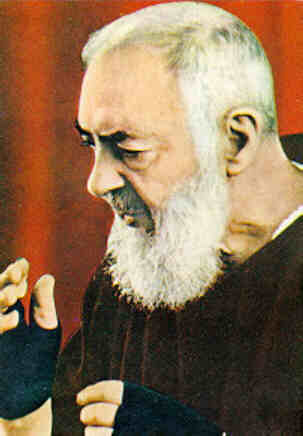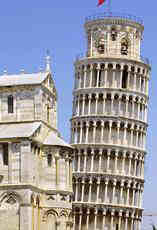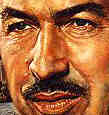^
1862 Battle of Secessionville
A Union attempt to capture Charleston,
South Carolina, is thwarted when the Confederates turn back an attack
at Secessionville, just south of the city on James Island. In November
1861, Union ships captured Port Royal, which lay about halfway between
Charleston and Savannah. This gave the Federals an important base
from which to mount operations along the southern coast. Before dawn
on 16 June, Yankee General Henry W. Benham led 9000 soldiers onto
James Island. Benham had a checkered career as a commander. He helped
clear western Virginia of Confederates in the summer of 1861 but was
ordered arrested by General William Rosecrans for "unofficer-like
neglect of duty" because he was headstrong and critical of leadership.
Eventually, he and Rosecrans made amends, and in the spring of 1862
Benham was sent to Port Royal to command the northern district of
General David Hunter's Department of the South. Benham decided to
attack the strong fortifications that protected Confederates under
the command of General Nathan "Shanks" Evans.
But the Rebels' fortifications were nearly impenetrable. The approach
to the fort was across a strip of firm ground bracketed by marshes,
which narrowed the ground that the Confederate artillery needed to
cover. Only 500 Confederates were inside, but another 1500 rushed
in from Charleston. Benham staged three attacks against the fort,
but each failed. The Federals lost nearly 800 men, while the Southerners
suffered only 200 losses. After the disastrous battle, Union officials
began pointing fingers, and Benham was arrested three days later.
His superior, Hunter, had ordered no assault without permission. There
was disagreement between Benham and his three subordinates over plans
to attack. The three later said they had presented objections on the
eve of the battle, but an aide to Benham said there had been no such
discussion. Benham blamed one of his commanders, Isaac Stephens, for
the botched charge. The Judge Advocate General's Office recommended
revocation of Benham's commission. But the aggressiveness he possessed
was in short supply among Union generals in 1862, and the Lincoln
administration rescinded the revocation. Benham joined Ulysses S.
Grant for the Vicksburg campaign, and he commanded the Army of the
Potomac's engineering brigade during Grant's Virginia campaign against
Robert E. Lee in 1864. |
^
Condamnés à mort
par la Révolution:
1795 (28 prairial an III):
DUQUESNOY
Ernest Dominique François Joseph, député de la convention
nationale, né à Bouvigny-Boyffete, département du Pas-de-Calais, par
le conseil militaire, comme convaincu d'avoir appuyé la proposition
d'une commission extraordinaire pour remplacer le comité de sûreté
générale, d'avoir demandé l'arrestation des membres de ce comité,
et par ces faits d'être un des principaux conspirateur contre la République
et la convention nationale, dans la révolte des 1er, 3 et 4 prairial
an 3, il s'est poignardé dans sa prison après le jugement et en est
mort.
DUROY
Jean Michel, né à Bernay, député à la convention nationale
du département de l'Eure, par le conseil militaire établi à Paris,
comme convaincu d'avoir été un des provocateurs des décrets rendus
le 1er prairial, d'avoir demandé le réarmement des terroristes, la
liberté des conspirateurs ses collègues, dans la nuit du 12 au 13
germinal, et de ceux qui se sont soustraits à l'arrestation etc..,
et par ces faits d'être un des principaux conspirateur contre la République,
et contre la Convention nationale, dans la révolte des 1, 2 3 et 4
prairial an 3, il s'est poignardé après la lecture de son jugement,
n'étant pas mort de ses blessures, il a été exécuté le même jour.
SOUBRANY
Pierre Amable, député du département du Puy-de-Dôme,
à la Convention nationale, né à Rivin, même département, par le conseil
militaire établi à Paris, comme convaincu d'avoir demandé la suspension
et le renouvellement du comité de sûreté général et proposé de prendre
toutes les mesures nécessaire pour empêcher que les tyrans du 12 germinal,
ne fissent encore une pareille journée; et par ces faits, d'être un
des principaux auteurs et conspirateur, conter la République, dans
la révolte contre la représentation nationale, les 3 et 4 prairial
an 3, il s'est suicidé, n'étant pas mort de sa blessure, il a été
exécuté.
1794 (28 prairial an II):
BAUDRY Jacques,
33 ans, né à Lisbourg, époux de Leroy Victoire, à Arras
CONIL
Jean Baptiste, fermier, domicilié à Beaucaire (Gard), comme
fédéraliste, par le tribunal criminel dudit département.
JOUVE
Joseph Vincent Xavier, maître d'école, domicilié à Aramon
(Gard), par le tribunal criminel dudit département, comme fédéraliste.
DUPREY Thomas Barnabé (dit Epiphant), ex capucin,
domicilié à Andelys (Eure), par le tribunal criminel du département
de la Somme, comme réfractaire à la loi.
FORESTIER Jean,
prêtre, domicilié à Canourgue (Lozère), par le tribunal criminel dudit
département, comme réfractaire à la loi.
PERRIN Jean
Joseph, marchand voiturier, domicilié à Mézières (Ardennes),
comme distributeur de faux assignats, par le tribunal criminel dudit
département.
RABOT François, faiseur de masses,
domicilié à Anvers-l’Union (Sarthe), par la commission militaire de
Laval, comme brigand de la Vendée.
REILLON Pierre,
tisserand, domicilié à Nuillé-sur-Ouette (Mayenne), comme contre-révolutionnaire,
par la commission révolutionnaire de Mayenne.
Domiciliés
dans le département de la Gironde, par la commission militaire
séante à Bordeaux:
BIRE
Jean, huissier, 64 ans, natif de la Chapelle-de-Magenau,
canton de Saintes (Charente Inférieure), domicilié à Bordeaux, comme
contre-révolutionnaire.
CISSAC Arnaud Antoine
(dit St André), perruquier, natif de Lavaur, département du Tarn,
domicilié à Bordeaux, comme ayant participé à la force départementale,
par suite des malheureuse journées des 31 mai et 2 juin 1793.
COSSON François, ex noble, né et domicilié à Bourg,
comme contre-révolutionnaire, par la commission militaire séante à
Bordeaux.
PALLANDRE Arnaud Antoine, 45 ans,
libraire, né et domicilié à Bordeaux, comme fédéraliste.
PATY
Bernard (dit Durayet), ex conseiller, au ci-devant parlement
de Guyenne, né et domicilié à Bordeaux, comme contre-révolutionnaire.
Par le tribunal révolutionnaire
de Paris:
RABOURDIN Charles,
ex vicaire, 31 ans, né et domicilié à Sermaise (Seine et Oise), comme
contre-révolutionnaire et fanatique.
... comme complices d'un complot formé par les prisonniers dans la
maison d'arrêt de Bicêtre, pour égorger la garde nationale de cette
maison, pour de-là se porter aux comités de salut public et
de sûreté générale de la Convention pour en poignarder
les membres, leur arracher le cœur, les
griller et les manger, et faire mourir les plus patriotes dans un
tonneau garni de pointes:
BERSON Pierre
(dit Sans-Souci), 40 ans, né à Vannes, cordonnier, ci-devant soldat
dans le régiment du Cap.
BERTON Etienne, 40
ans, né à Thouars, département de l'Yonne, marchand de vin, y demeurant.
BOURQUIEU Claude, 32 ans, né à Manche, département
de la Haute-Saône, ex abbé, domicilié à Neuilly-sut-Seine, détenu
à la maison d'arrêt de Bicêtre.
DELATRE F. X.,
32 ans, né et domicilié à Dainville, département du Pas-de-Calais,
cordonnier.
LA FORCE L., marchand boutonnier,
né à Lille, département du Nord, domicilié à Rouen (Seine Inférieure).
LEGRAND L., 22 ans, né à Paris, employé aux charrois
et ci-devant, domestique du général d'Ardy dans l'armée d'Ardennes,
domicilié à Abbeville (Somme).
TEISSIER L.,
26 ans, né à Campinc (Manche), marchand de chevaux, domicilié audit
lieu.
DUMONT Pierre, 24 ans, boulanger à Strasbourg,
détenu dans la maison de Bicêtre à Paris.
... domiciliés à Paris:
BERNARD
Antoine, 3? Ans, né à Meaux en brie, domicilié à Paris, sculpteur
en marbre,.
BONNE Paul Louis Claude, 17 ans,
né à Chartres (Eure et Loire), compagnon menuisier, détenu dans la
maison de Bicêtre.
BRIDIER Etienne, 38 ans,
né à Bourges, ci-devant, valet-de-chambre du comte de Laval-Montmorency,
détenu en la maison d'arrêt de Bicêtre.
CHATELIER M.,
26 ans, né à Saint-Anne-Debuc, département de la Manche, tailleur.
CHEVALIER P., 53 ans, né à St Germain-en-Laye, marchand
de veaux à Paris.
DUPONT François, 33 ans,
né à Verneuil, marchand forain.
GRAND J. P.,
(dit Lyonnais), 25 ans, né à Avignon, gazier, fils de Suisse, détenu
dans la maison de Bicêtre.
JANNIOT N., 60 ans,
né à Maurice Court (Meurthe), fondeur racheveur, domicilié à Paris,
département de Mayenne et Loire [sic].
LADRY,
24 ans, garçon menuisier, né à Presenlaux.
LEROY J.
(dit Sans-Géne), buffetier, 26 ans, né à Auxerre (Yonne).
LUCAS
F. N., 28 ans, né à Ferté-sous-Jouare (Seine et Marne), serrurier.
MAUCLERC B. L., 21 ans, né à Troyes, département
de l'Aube, libraire à Paris.
OFFROY G., 29
ans, né à Aurillac (Cantal), ci-devant secrétaire aux Invalides.
POUMET F., 22 ans, né à Châtellerault (Vienne).
POIRIER N., Cordonnier, 39 ans, né à Avalon (Yonne).
PREVOST E., 25 ans, né à Chambly (Oise), pâtissier,
ci-devant soldat au 22ème régiment, ci-devant Viennois.
QUITRE
C., 30 ans garçon tapissier, né à Pont-Audemer (Eure).
SALER A., 22 ans, né à Naples, fabricant de cordes
à violon.
TOURNIER G., 30 ans, né à St-Clément
(Cantal), brocanteur.
... et nés à Paris:
BALLIN
Augustin, 18 ans, né et demeurant à Paris, racheveur de boucles,
détenu à Bicêtre.
CERDILLOT ou ARDILLOT,
soldat, 41 ans.
CURTON J.H. 18 ans, né à Paris,
domestique chez l'ex comte de Sénéchal, à Paris.
DELVEAUX
J., 19 ans, brocanteur.
GUYART M.,
25 ans,menuisier et colporteur, d'abord condamné comme suspect à être
détenu jusqu'à la paix, dans la prison de Bicêtre.
MASSE P. J. (dit Brin d'Amour), 26 ans, cuisinier, ci-devant
soldat dans le régiment de Vintimille.
NEVEUX C. P.,
charron, 17 ans.
RICHET L. C., 27 ans, né à
Paris, tanneur et imprimeur en papiers peints.
... comme conspirateurs:
BUSSIERE Jean
Baptiste, ex clerc d'avoué, domicilié à Bellac (Haute Vienne).
FILOUX Simon, ex curé de Mortemart (Haute-Vienne).
HORION Louis Charles, instituteur et musicien, domicilié
à Bellac (Haute Vienne).
MINET Elisabeth, couturière,
46 ans, née à Lagrandville (Ardennes), domiciliée à Quincy (Seine
et Marne), ... voyageant sans passeport.
LAMARCHE Jean,
36 ans, natif d'Ormesson (Seine et Marne), jardinier, domicilié à
Paris, ... ayant cherché à avilir la représentation nationale, notamment
Robespierre,
en disant que ce député était fort pauvre avant la révolution, et
qu'a présent il était fort riche, et qu'il allait acheter la maison
de madame de Chimay, qu'il finirait comme Danton,
qui paraissait fort patriote, que son tour viendrait comme les autres,
qu'il n'en resterait plus de cette législature, que sept ou huit,
que Collot-d'Herbois
subirait le même sort, et qu'avant six mois ils seraient tous guillotinés.
VIAL Nicolas, marchand 71 ans, natif de Lyon, département
du Rhône, domicilié à Charreton (Seine), ... et ayant conservé chez
lui une représentation enluminée de l'assassin de
Marat, avec une complainte au bas.
1793:
CAUVET Jacques, cuisinier, domicilié à Paris,
comme distributeur de faux assignats, par le tribunal criminel du
département de Paris.
1792:
DELAINAY Jean Baptiste, marchand de vin, domicilié
à Paris, comme distributeur de faux assignats, par le tribunal criminel
de Paris.
TORTERAT Marie, garde malade, domiciliée
à Paris, comme distributrice de faux assignats, par le tribunal criminel
de Paris. |
1752 Joseph
Butler, Anglican theologian born in 1692. His 1736 Analogy
of Religion demonstrated the strong probability for the existence of
a caring God over against that of a disinterested Creator Deity.— JOSEPH
BUTLER ONLINE: Human
Nature, and Other Sermons — The
Analogy of Religion . Appendix I: Of Personal Identity
1620
Carlo Venziano Saraceni, Italian Baroque era painter born in 1580.
— MORE
ON SARACENI AT ART “4” JUNE
with links to images.
|
 ^
On
a 16 June:
^
On
a 16 June: 2001
La Torre di Pisa ora è risanata
2001
La Torre di Pisa ora è risanata